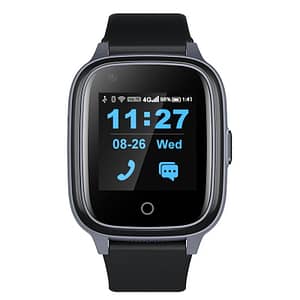Our elderly are at the risk of cardiovascular health deterioration. Smart wearables have found ready acceptance among the elderly. They are also recommended by doctors, health programs and insurance companies as an effective means of preventing health issues. Advances in software development for the health monitoring watches for elderly, has resulted in more accurate in measuring your health and workout parameters.
What Can Health Monitoring Watches Do?
Our latest smart watches models have a dedicated feature for the elderly – a ‘fall detect’ technology – which is an effective feature in times of distress.
If the fall detected is hard enough, the watch sounds an alarm, taps the user on the wrist as a waking up mechanism and displays an alert message on the screen.
Some of our elderly watches have blood pressure monitoring technology as well, which is also a very useful feature for the elderly with hypertension and allied health conditions.
Heart rate Tracking
Monitoring your sleep patterns,
Counting the calories burnt during a workout
Pedometer or step counter
Incorporated global positioning system (GPS) for enhanced accuracy in tracking of distances covered and speeds achieved
SpO2 Sensor (Pulse Oxymeter)
ECG app to monitor cardivascular
These health tracking features are extremely relevant for the elderly, who are at greater risk of cardiovascular diseases. Technological improvements have allowed to measure heart rates and blood oxygen levels with high degree of accuracy.
How accurate are blood pressure monitor watches?
It’s hard to know. The best way to check is to compare several readings with a medical-grade device. Smartwatches NZ offers a wide range we have taken the liberty to test against medically approved devices.
-
Elderly Watch with Fall Detection$333.08
-
Elderly Smart Health Bracelet$289.43
Health monitoring smartwatches are categorized as Class I or Class II low-risk medical devices. Low-risk medical devices don’t require FDA approval to be marketed.
However, these watches still have benefits. They may give accurate or near-accurate results that provide valuable information; for example, if you have high blood pressure during pregnancy. They may also provide information about how your blood pressure responds to exercise.
